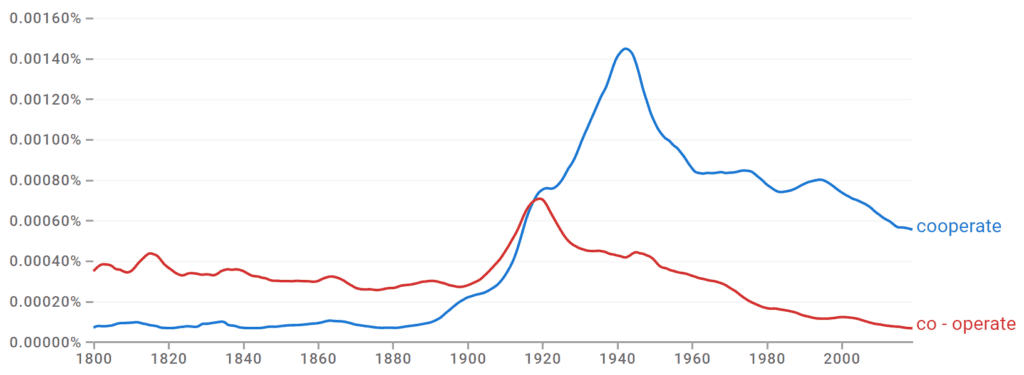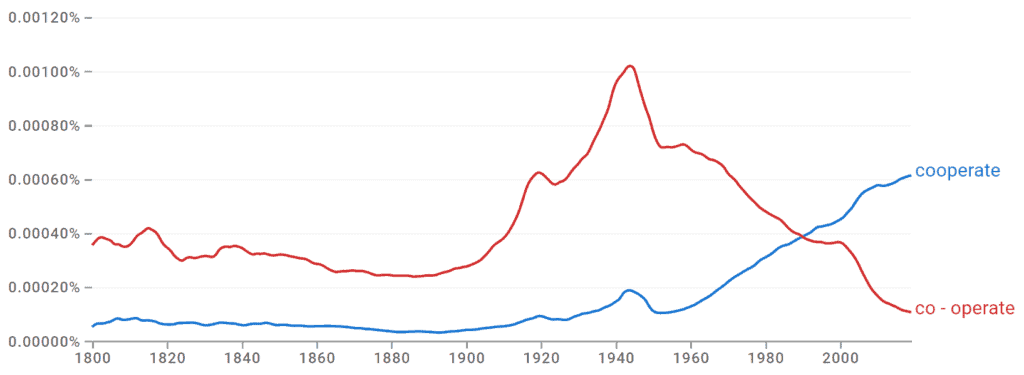I’ll be honest; I always thought cooperation and co-operation were two different words but with similar spellings. I only discovered a few years ago that they actually have the same meanings! So, to save you from looking like a fool as I did, I’ll explain the difference between them right here with tips to never forget!
Cooperation or Co-Operation: What’s the Diff?
There’s seriously no difference in meaning between the nouns “cooperation” and “co-operation” unless, you guessed it, you are writing with regional preferences.
Both of these terms are used to refer to the simple act of operating together with other people when working toward a common goal or purpose. When using the version with the hyphen, “co-operate,” you’re actually using a much older version of it and the one that’s preferred in Canada and the UK.
How Do You Spell Cooperate?
The more modern and globally accepted spelling you should use is “cooperate” without the hyphen. The version “co-operate,” with a hyphen, is less common and is sometimes considered outdated grammar.
But both are still correct and accepted by all dictionaries, so fill your boots and use whichever one you want.
When to Use Cooperate and Co-operate
In most cases, you should use the spelling “cooperate” because it’s more widely recognized by all English-speaking countries, even though “co-operate” is touted as the one to use outside the US.
Synonyms for Cooperate
Here is a list of other words you can use in place of “cooperate” in both speech and writing.
- Collaborate
- Work together
- Team up
- Join forces
- Partner
- Unite
- Conspire
- Combine
Cooperate Examples in a Sentence
As I always say, context is king, and seeing certain words within a full sentence can help deepen their meaning and further show how to use them.
- The two once-rivaling companies decided to cooperate on a joint project to develop new technology that would benefit the world.
- To solve the problem of defective materials, all team members had to cooperate and share their expertise to address the issue.
- By choosing to cooperate with the investigation, the suspect was able to negotiate a reduced sentence.
- In order to succeed in this world, we should learn to cooperate with one another and respect our differences.
Co-Operate Examples in a Sentence
- A bunch of different departments needs to co-operate to achieve the company’s goals.
- The international community needs to come together and co-operate on a shared goal to address climate change and its consequences.
- The scientists decided to co-operate in their research to expedite the discovery process of life-saving medicine.
- As an author, I co-operate with other authors on joint promotions all the time.
Learn to Cooperate
Bada-bing, bada boom! That’s a wrap on another grammar guide showing you the difference between “cooperate” and “co-operate.” I hope my quick breakdown and tips help clear up any questions you have about the two spellings. Be sure to use the more modern spelling “cooperate” if you can but know that “co-operate” is just fine to use, as well.





Comments are closed.